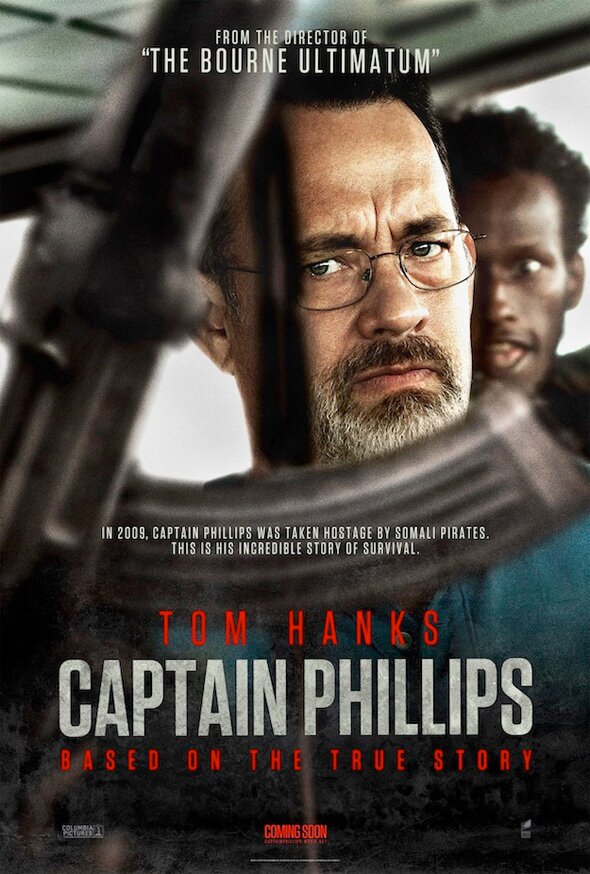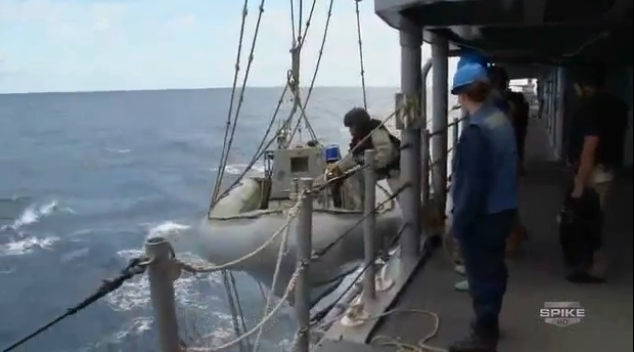Somali pirates board oil tanker; warship en route
 NAIROBI, Kenya — Somali pirates armed with automatic weapons boarded an oil tanker with $50 million of oil and 23 Russian crew onboard Wednesday, and a Russian warship was rushing to intervene, a European Union Naval spokesman said.
NAIROBI, Kenya — Somali pirates armed with automatic weapons boarded an oil tanker with $50 million of oil and 23 Russian crew onboard Wednesday, and a Russian warship was rushing to intervene, a European Union Naval spokesman said.
The pirates launched the attack on the Liberian-flagged ship, which is named the Moscow University, at dawn. Cmdr. John Harbour, the EU Naval Force spokesman, said the crew evaded the pirates for several hours while sending out distress calls.
The pirates are on board the 106,000 ton ship but it is unclear if they are in control of the ship or the 23 Russian crew. The ship is carrying 86,000 tons of crude oil, worth roughly $50 million.
A Russian warship is heading to the ship at full speed, said Harbour. He declined to say how long the warship would take to arrive or what action it might take, citing security.
The attack occurred about 500 miles (800 kilometers) east of the Somali coast. The ship was not registered with the Maritime Security Center, said Harbour. The ship’s route was from the Red Sea to China, the ship’s owner said.
The owner, Novoship, said in a statement that the captain sent a distress call to the Russian anti-submarine warship the Marshal Shaposhnikov before communications were severed. It said the pirates attacked using automatic weapons.
Novoship is a subsidiary of Sovcomflot, which is owned by the Russian government.
In February, Danish special forces prevented the hijacking of a ship after pirates had boarded the Ariella. Special forces from the Danish Absalon boarded the ship while the crew locked themselves in a secure room.
Pirates currently hold more than 300 hostages taken from ships attacked off East Africa in the last several months. Eleven suspected Somali pirates were indicted in U.S. federal court late last month, but the international community has had problems formulating an accepted policy to try and jail pirate suspects.
Kenyan Foreign Affairs Minister Moses Wetangula said Wednesday that Kenya is renegotiating several agreements signed with the U.S, Canada and European Union to prosecute and jail pirates.
Kenya in 2008 signed agreements to prosecute and detain Somali pirates captured by international warships patrolling Indian Ocean waters off the Somali coast.
Wetangula said he gave notice two weeks ago of Kenya’s unwillingness to continue prosecuting and incarcerating Somali pirates because some of the countries that agreed to give financial support to Kenya’s strained justice system had failed to do so.
“We have fulfilled our obligations but some of our partners haven’t,” Wetangula told reporters. He declined to name specific countries. “What we will not do or we will not accept is a situation where we are single-handedly, as a country, carrying the responsibility for fighting piracy when piracy affects everybody.”
Kenya needs financial assistance to hire Somali interpreters and build prison facilities for pirates, he said. One sticking point is what happens to pirates after their jail terms are up.
“We have accepted them, prosecuted them and sent them to jail. Somebody else must receive them after their jail terms and these are the issues we are discussing with the countries that captured them and brought them here,” he said.
___
Associated Press reporters Tom Odula in Nairobi and David Nowak in Moscow contributed to this report.
Comments
comments
 Calendar
Calendar






































